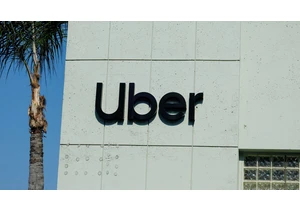Ghost kitchens—industrial cookhouses located in subprime real estate areas that exclusively prepare food delivery—got popular during the pandemic. Now, the same concept is coming to the doctor’s office. A company called Rezilient Health is opening five new clinics in downtown Miami in partnership with Reef Technology, a SoftBank-backed parking startup. Reef started out managing parking lots, but its business is now centered on turning its vast number of concrete pads into real estate opportunities. It’s using its footprint to support a booming ghost kitchen business, mini-warehouses for last-mile delivery, and vertical farms. In 2020, Reef inked deals with healthcare startup Carbon Health as well as medical testing laboratories BioReference and FastLabs to launch 50 pop-up COVID-19 testing sites in Florida, New York, and California. Since then, Reef has helped Carbon Health turn some of its nine testing sites into satellite urgent care offices. Now Reef is expanding further into the health clinic space with Rezilient Health. [Photo: Reef]Rezilient Health was founded in 2016, “to build a healthcare system without waiting rooms,” says the company’s founder, Dr. Danish Nagda. The company delivers primary care, urgent care, and mental health care as an employer benefit. The company’s clinics, called Cloud Clinics, are essentially modified shipping containers sitting in parking lots. Exam rooms are outfitted with a large screen. Patients meet with a doctor over video and an in-person nurse conducts the physical part of the exam including any testing and imaging. The appointment is 30 minutes long, almost twice the length of an average exam. A rendering of a Rezilient Health Cloud Clinic in Miami [Rendering: courtesy of Rezilient]Rezilient is launching five clinics in St. Louis and one in Miami. The most compelling aspect of its model is that patients can show up at any location and still see their same doctor. It also allows the company to open and close locations based on how well trafficked they are. “From a real estate partnership perspective, it is a huge value add for us because it allows us to scale very, very quickly,” says Nagda, citing Reef’s 5,000 locations around the U.S. [Rendering: courtesy of Rezilient]Reef’s increase in interest from newfangled providers like Carbon Health and Rezilient is representative of a larger push toward hybridized healthcare that isn’t tethered to a single location. While the use of telehealth rose during pandemic lockdown restrictions, it’s since dropped back down as patients return to conducting much of their healthcare in person. Still, health systems are now using telehealth to make primary care more accessible and to allow doctors to have more ongoing contact with patients throughout the year. In short, they’re enabling a better patient experience. [Photo: Reef]While pop-up clinics are an old idea, telehealth is giving the concept new life. Mobile healthcare centers were pioneered by organizations and healthcare centers that cater to low-income communities, which often face barriers getting to the doctor’s office. Buses and trailers are equipped with tests and flu vaccines. During the pandemic, abortion care clinics experimented with telehealth in mobile sites to more easily dispense medication to patients. The model that Rezilient uses, with doctors who consult over video, closely matches that of sexual healthcare clinic Just the Pill. It’s not just telehealth that has paved the way for shipping-container clinics. Medical technologies—like ultrasound machines and point-of-care testing—have gotten smarter and smaller, allowing savvy healthcare providers to employ them in stripped-down settings. These advances have the potential to make in-person healthcare more accessible. Even telehealth-first healthcare providers such as Ro and Hims are thinking about how to provide care offline. Ro acquired a company called Workpath, which does at-home blood draws and vaccinations. Hims has partnered with other health systems for in-person care, including Ochsner Health, Privia Health, and Mount Sinai. How many of these new approaches will stick around for the long haul remains to be seen. What’s clear is that the healthcare industry is entering a period of experimentation: a new era that aims to focus on the patient.
Autentifică-te pentru a adăuga comentarii
Alte posturi din acest grup

Hackers linked to Russia’s government launched a cyberattack last spring

In a time where tariff price hikes are invading seemingly every

Remember the viral “Ice Bucket Challenge” of 2014? Over a decade later, it’s back—

The U.S. Federal Trade Commission on Monday sued Uber Technologies, accusing it of signing up some Uber One subscribers without their knowled

As Big Tech kicks off its quarterly earnings season this week, the industry’s bellwether companies have been thrust into a cauldron

Weeks ahead of his death, Pope Francis dedicated this month’s prayer intention to

Remember when TikTok went nuts for “Dubai chocolate”? Well, that fervor is now causing an international shortage of pistachios.
The trend took off in 2023 when food reviewer Maria Vehera
